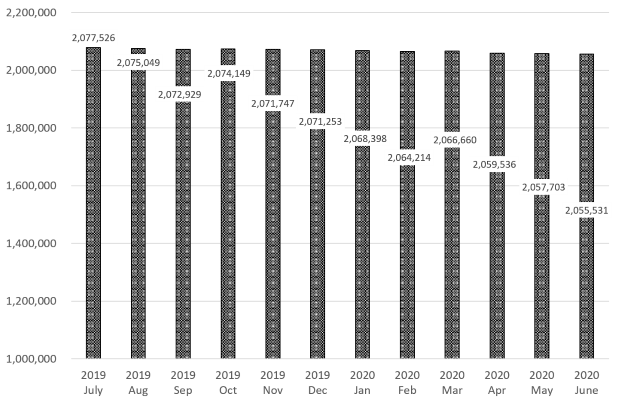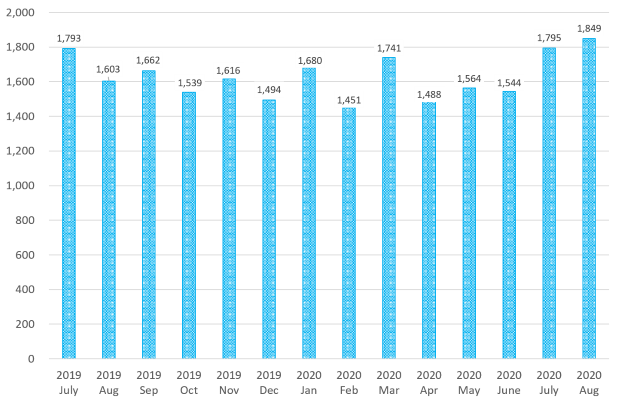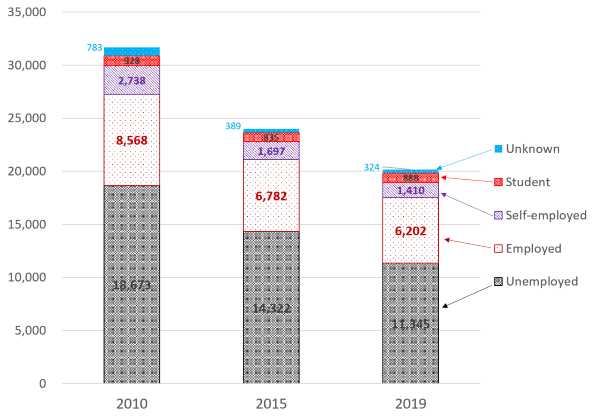Column Finance and the Social Security System 2020.09.30
【Aging, safety net and fiscal crisis in Japan】No.280:Although the number of livelihood protection benefit recipients and suicides has not increased as much as anticipated, this may still change
In this column series, Yukihiro Matsuyama, Research Director at CIGS introduces the latest information about aging, safety net and fiscal crisis in Japan with data of international comparison.
In April 2020, when the government began requesting the public to curb socio-economic activities to prevent the spread of COVID-19, many worried that the number of livelihood protection benefit recipients and suicides would increase rapidly. According to the data released by the Ministry of Health, Labor, and Welfare on September 2nd, the number of livelihood protection benefit recipients was 2,055,531 in June, which is less than before the occurrence of COVID-19 (Figure 1). According to the number of suicides, which are released monthly by the National Police Agency, it seems that the number of suicides began to increase in July and August, although the figures are not much different from 2019 (Figure 2).
However, as shown in Figure 3, more than half of the suicides were unemployed people. This suggests that people who have a difficult life as a result of losing their jobs often commit suicide before receiving livelihood protection benefits. Therefore, if a third wave of COVID-19 (which is expected to start in the fall of 2020) causes the economy to stagnate and the unemployment rate to surge, it is feared that the number of suicides will increase.
Figure 1 Number of livelihood protection benefit recipients

Source: Ministry of Health, Labor, and Welfare
Figure 2 Number of suicides

Source: National Police Agency
Figure 3 Occupational composition of suicides

Source: National Police Agency
